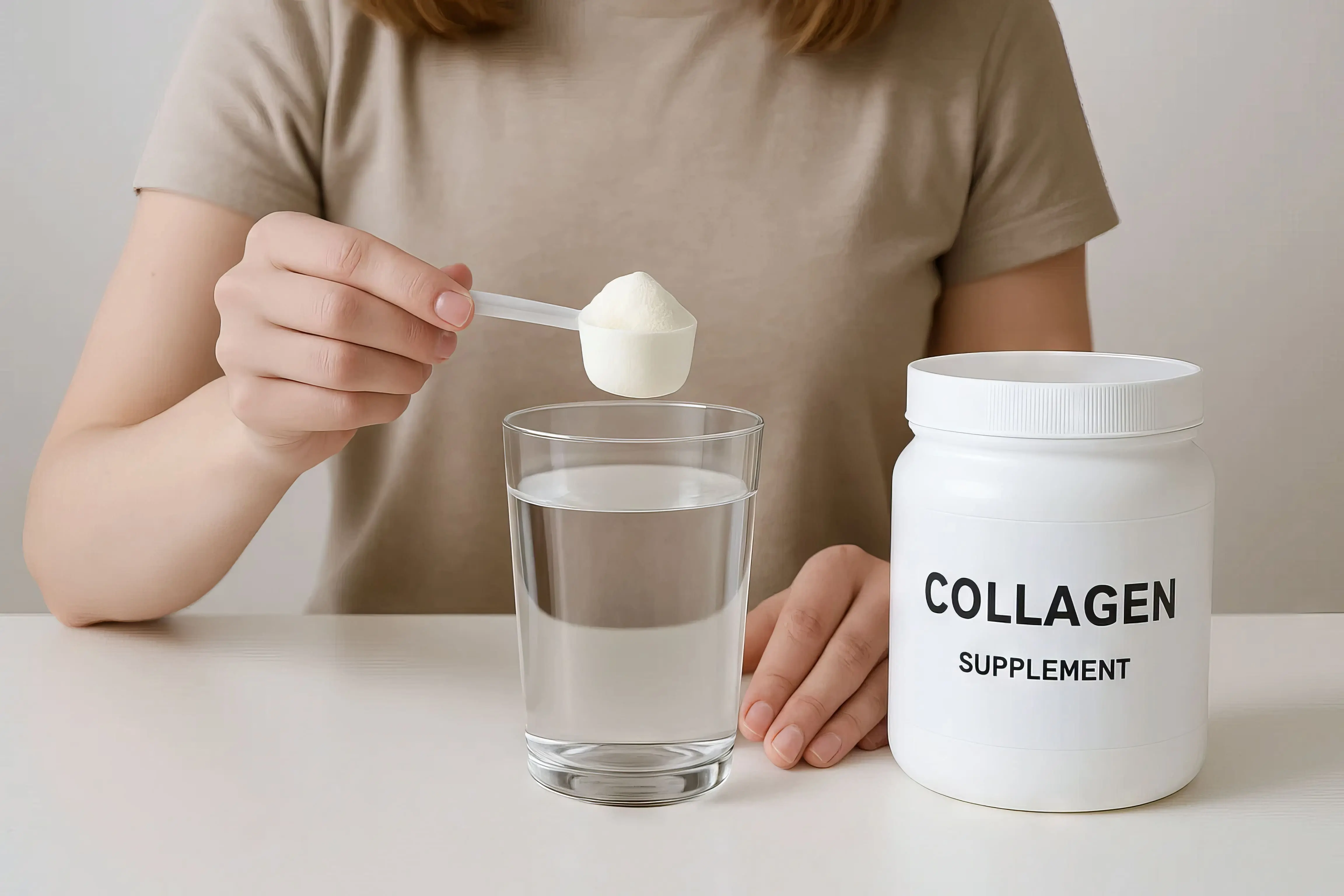Ultimate Guide on How to Start Your Supplement Company

Starting a supplement company involves careful planning and strategic thinking. Begin by researching and creating a solid business plan that includes product supply, manufacturing, marketing, packaging, and distribution. Investigate current market demands to choose popular and effective products for your inventory. Ensure that you understand the essentials like brand identity protection and innovative promotion methods. A well-documented plan will guide you in making informed decisions and can serve as a valuable tool when explaining your business to others.
Key Takeaways:
- Business Planning and Legal Compliance: Starting a supplement company involves creating a solid business plan, focusing on product supply, manufacturing, marketing, and distribution. Ensure legal compliance with FDA regulations, obtain necessary permits, and maintain product quality through GMP-certified manufacturers.
- Brand Identity and Product Development: Choose a niche and develop personalized supplements targeting specific health needs. Build a strong brand identity by focusing on transparency, quality, and unique value propositions. Partner with reliable manufacturers and maintain high standards in product formulation and labeling.
- Market Strategy and Scaling: Effectively market your supplements using digital platforms, social media, and influencer partnerships. Focus on customer engagement and feedback to continuously improve your products. As your business grows, scale production through outsourcing and expand your product range to meet evolving customer demands.
- Quality Assurance and Legal Protections: Prioritize quality control through rigorous testing and third-party lab certifications. Protect your brand with trademarks and secure liability insurance to minimize risks. Ensure transparency in labeling and marketing to avoid legal pitfalls and build customer trust in the competitive supplement market.
What Exactly is a Supplement Business?
Starting a supplement business means diving into the world of health-focused vitamins and dietary products, primarily to enhance people's well-being. Unlike many other sectors, entrepreneurs who build a dietary supplement brand typically don't manufacture the products themselves. Instead, they partner with private label manufacturers to create goods branded under their name. This strategy enables them to concentrate on marketing and branding their supplements effectively. Success hinges on understanding consumer needs and ensuring product quality through innovation and reliable sourcing.
Foolproof Plan for Starting Your Supplement Company
Developing an action plan is crucial for paving a clear path to success in the supplement industry. Start by outlining your business's mission, vision, and core objectives. Delineate specific short-term and long-term goals, ensuring each goal aligns with your overall strategy. Consider creating a roadmap that details the necessary steps to achieve these goals. This roadmap should include timelines for product development, marketing initiatives, and sales targets.
To stay agile, integrate flexibility into your plan, allowing adjustments based on market trends and consumer feedback. Monitor progress regularly by setting key performance indicators (KPIs) for each area of your business. These metrics will help you evaluate the effectiveness of your strategies and identify areas needing improvement. Regular reviews and updates to your action plan will keep your business aligned with the industry's dynamic landscape, ensuring continuous growth and relevance.
Selecting your supplement business model
Identify your niche
To excel in the health supplement industry, focus on filling market gaps with niche products. Instead of generic offerings, consider plant-based vitamin C for vegans or potent immune boosters for athletes. This targeted approach helps your brand stand out by directly addressing specific needs. Such specialization not only builds loyalty but also enhances the effectiveness of marketing strategies. Understanding and tailoring products to your audience ensures a stronger market presence.
Personalized supplements
Creating personalized supplements for target groups like pregnant women, seniors, pet owners, and busy professionals can effectively address their unique health challenges. By focusing on specific issues like prenatal health, age-related deficiencies, pet nutrition, or energy support for hectic lifestyles, you can tailor products that meet these needs. Embrace dietary restrictions and wellness trends by offering vegan, gluten-free, or organic options. Solving real problems for niche audiences ensures your offerings stand out in a crowded market.
What aligns with your brand
Elevate your brand by focusing on the natural and organic. Offer a promise of quality and transparency that customers can trust. Share detailed information about the origin and benefits of your sustainable choices. Make your product labels simple, clean, and reflective of your brand's core values—much like the calming aesthetics of soy candles with beige, understated designs.
Tell a heartfelt story, one that connects with people seeking wellness through nature. Secure your unique brand elements through trademarks to maintain your identity as a leader in organic health products.
Partnering with a Manufacturer to Create Your Own Supplements
Creating custom supplements offers the benefit of complete control over ingredients and formulation, allowing for unique health claims. You can choose organic, vegan, or branded components tailored to specific needs. However, this involves responsibilities like higher costs, ensuring regulatory compliance, and deciding on delivery methods such as capsules or gummies.
Permits and Licenses
To start manufacturing supplements in the US, you need several licenses and permits. These include a manufacturing license, distribution permit, and various retail permits, which may differ by state and business type. Compliance with FDA regulations and adherence to Good Manufacturing Practices (GMPs) is essential.
Health department inspections ensure product safety, helping maintain consumer trust and prevent legal issues. Partnering with experienced companies can streamline this process efficiently.
Regulations & Compliance
Ensuring compliance with FDA regulations and Good Manufacturing Practices (GMP) is crucial in supplement manufacturing. These standards guarantee a sanitary environment, precise formulations, and rigorous product testing, safeguarding safety and quality. GMP-certified facilities, such as those accredited by NSF GMP, are essential for upholding these standards in the U.S.
By adhering to these practices, supplement manufacturers not only meet legal requirements but also enhance consumer trust and avoid potential legal issues.
Time & Costs
Outsourcing supplement manufacturing to third-party manufacturers involves multiple considerations. Key advantages include cost savings on equipment and labor, access to established supply chains, and enhanced quality control, which simplifies production adjustments.
However, challenges exist, such as higher minimum order quantities and the meticulous process of custom formulations. Logistical planning is crucial as time investments can be significant, especially when dealing with complex custom products or navigating regulatory hurdles.
Research and development
Investment in Research and Development (R&D) is vital for supplement businesses to ensure the creation of safe, effective, and high-quality products. Selecting the right ingredients plays a crucial role in product efficacy. Determining accurate dosages helps meet consumer needs safely. Research & Development aids in aligning product formulations with current market demands.
Through innovation and scientific advancements, companies can capture niche markets and drive profitability. Emphasizing R&D fosters industry compliance and consumer trust.
Expanding your production capacity
Partnering with a manufacturer offers numerous benefits to scale your supplement business efficiently. It allows you to ramp up production seamlessly as demand grows without investing in costly infrastructure. You'll benefit from increased efficiency, reduced costs, and access to high-quality ingredients.
Outsourcing also eliminates the hassle of equipment and storage, providing flexibility and scalability. By handling production, you can focus more on marketing and business growth, ensuring seamless expansion without bottlenecks.
Set a Budget & Cost Structure
Pre-estimate startup costs
Estimating startup costs is a critical step in launching your supplement business, as it forms the foundation for your financial planning and fundraising. Begin with an overview of the significant expenses involved, ensuring that you have a complete picture of what it will take to get your business off the ground.
Product development and manufacturing are often the largest initial expenses. Entrepreneurs typically allocate some expenses for initial product orders. In addition, consider the costs associated with marketing, for effective launch campaigns that drive brand awareness and consumer interest.
Legal fees are also essential to your startup budget. These funds will cover tasks such as trademark registration and compliance with industry regulations. Don't forget ongoing expenses such as office rent, utilities, supplies, and employee salaries. It's crucial to calculate these to maintain a realistic monthly operating budget.
Lastly, creating an emergency fund can provide a cushion for unexpected costs and help avoid cash flow problems. By carefully estimating each of these expenses, you set a solid financial base that helps secure funding from investors or lenders.
Manufacturing expenses & pricing structure
Understanding the manufacturing expenses and setting a pricing structure are key steps to make your supplement business successful. Manufacturing costs include raw materials, production labor, facility overheads, and packaging.
To manage effectively, use the 30,30,40 rule to allocate your sale price: 30% for manufacturing, 30% for marketing, and 40% for overheads and profit. For instance, with a target sale price of $30 per unit, aim for a $9 manufacturing cost.
Work closely with manufacturers and source ingredients smartly to optimize costs without sacrificing quality. Assess competitor prices to ensure your pricing reflects your supplements' unique value. Consider tiered pricing for product variations, offering choices to boost sales. This strategic approach can help you thrive in a competitive market.
How to Find Supplement Suppliers Effectively
To source supplements effectively, focus on finding reliable supplement manufacturers known for quality and compliance. Attending trade shows can also help build relationships.
Ensure manufacturers meet regulatory standards and verify their certifications. Request samples to check product quality. Discuss terms like minimum orders, pricing, and scalability. Clear contracts will aid in sustaining high standards and establishing your brand in a competitive market.
Quality Assurance Testing
Quality assurance testing is a crucial foundation for building a trustworthy supplement brand. By rigorously testing your products, you ensure they meet top safety and effectiveness standards, which boosts consumer trust and meets legal requirements.
Start by establishing sound testing protocols for raw materials to check for harmful contaminants, such as heavy metals and pathogens. Partner with third-party labs for impartial verification of ingredient purity and potency. Implement comprehensive quality checks at every production stage, ensuring adherence to Good Manufacturing Practices through both scheduled and surprise audits.
Thorough documentation of each testing phase is key, supporting compliance and providing valuable marketing evidence of your dedication to quality. This focus on quality not only safeguards your brand's reputation but also delivers tangible health benefits to consumers, giving you an edge in the competitive market.
Packaging & Labeling
Packaging and labeling are crucial for supplement businesses, serving both as protection and a promotional tool. Select packaging that balances visual appeal with regulatory compliance, using materials like sealed glass bottles to shield from damage and contamination.
Ensure labels are visually enticing while delivering vital information such as ingredient lists, usage instructions, and health warnings. Abiding by FDA guidelines is essential for ensuring safety and legality, with all health claims supported by scientific evidence. By investing in creative design aligned with your brand, you can attract consumers and forge trust through clear and professional communication.
Navigating Legal Requirements
Navigating legal requirements is crucial for a supplement business because it ensures compliance with regulations, protects customer data, and minimizes risks. Understanding these legalities secures business operations and helps maintain credibility in a competitive market.
Accreditation & Licensing
To legally sell supplements, it's crucial to secure the proper licenses and certifications, as regulations can greatly differ by state or country. Typically, dietary supplements require less strict oversight compared to medicine.
Exceptions may exist for private labeling, but regulatory standards still apply to ensure product safety and efficacy. Always verify local regulations and consider any unique rules regarding "Novel Food" or medicinal ingredients specific to your area and business model.
Legal Liability Insurance
Ensuring your business is protected with liability insurance is crucial, especially when dealing with products ingested by the public. This insurance safeguards against potential lawsuits if someone gets ill, providing a safety net for unforeseen problems.
It's vital to maintain diligence by delivering high-quality products with clear ingredient disclosures. Additionally, consider inventory insurance to shield your stock from unexpected incidents, ensuring your business remains resilient. Embrace these protective measures for peace of mind and operational security.
Product Liability and Legal Claims
Accurate product marketing is crucial to avoid legal pitfalls and build customer trust. Ensure your labels are clear and contain essential information like the product name, ingredients, recommended intake, and expiry dates.
Transparent packaging with eye-catching design helps attract and retain customers. Remember that making unverified claims can lead to legal troubles, so creatively navigate regulatory requirements. Align your product with the right audience and emphasize quality over price for long-term success.
Medical Endorsements
Collaborating with licensed healthcare providers is crucial for supplement businesses, especially when targeting specific health conditions. These experts can validate the safety and efficacy of your products, ensuring they meet health standards.
Their insights help tailor your supplements to effectively aid consumers, building trust and boosting credibility in the marketplace. Additionally, their endorsement can enhance your brand's reputation, attracting a health-conscious audience looking for reliable and beneficial products. This partnership ultimately supports your business growth and success.
Final Thoughts: How to Start Supplement Company
Starting a supplement company is detailed but rewarding. Research thoroughly, plan strategically, and adhere to all regulations to succeed in this industry. Identifying your niche and understanding your audience allows you to align products and marketing effectively.
A solid business plan is vital for guiding decisions and managing budgets, from manufacturing to compliance. Focus on quality to build trust with consumers. Collaborating with experts enhances strategy and execution for long-term success.
FAQs on How to Start Supplement Company
How can private labeling enhance your supplements business grow?
Private labeling allows your supplement business to offer unique products without the need for extensive manufacturing facilities. It provides a ready-made solution to quickly enter the market, helps build your brand presence, and establishes customer loyalty by offering specialized products under your brand name.
What's the key to building a standout supplement brand?
The key to building a standout supplement brand lies in understanding your audience, offering high-quality products, and maintaining transparency. It's crucial to differentiate through effective storytelling, unique branding, and providing exceptional customer service that resonates with your target market.
Why is product quality so important?
Product quality is vital because it directly impacts consumer health and safety. High-quality products build trust, enhance your brand's reputation, and lead to customer satisfaction and loyalty, essential for long-term business success in the competitive supplement industry.



.png)

















.png)



.gif)


